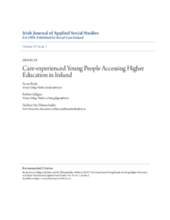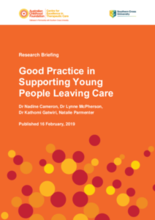Demographic Data
|
Sources: World Bank, UNICEF,UNDP HDR 2015, DHS 2014 |
Displaying 6491 - 6500 of 14390
This report from the Parliamentary Assembly of the Council of Europe looks at the right of donor-conceived persons to know their origins in a global context where more than 8 million children worldwide have been born as a result of assisted reproductive technologies.
This open access article explores the construction of childhood and parenthood in rural communities in Indonesia based on a series of focus group discussions with service providers, community decision makers, and paraprofessionals; a group that the authors refer to as “frontline providers”.
The goals of this study were twofold: (1) to compare the pragmatic language skills (i.e., social communication skills) of 42-month-old neglected children with those of same-aged non-neglected children and (2) to measure the prevalence of pragmatic difficulties among the neglected children.
This chapter identifies the structural components of the transnational illegal adoption market by applying the basic logic of the routine activity theory that has been developed by Cohen and Felson.
This article examines the professional identities of family therapists employed by Family Counselling Services (FCS) in Norway and their experiences providing therapeutic services to parents whose children are placed in public care.
This brief paper focuses on the question of how care-experienced young people in Ireland fare in accessing opportunities in higher education.
This paper reports on innovative research methods using GPS [Global Positioning System] devices that can trace social workers' mobilities and explore the use of office space, home working and visits to families in two English social work departments. This article presents unique findings that reveal how mobile working is shaping social care practitioner wellbeing and practice.
This exploratory study investigated kinship (e.g., relative) caregivers' (N = 130) perceived and actual knowledge associated with child trauma.
This article revists a report from February 1990 that shone light on the situation of children in orphanages in Romania and the high rate of HIV infection among them.
This research summary provides an overview of what young people leaving residential care in Australia need and how those working in residential care can best help young people prepare for independence.



